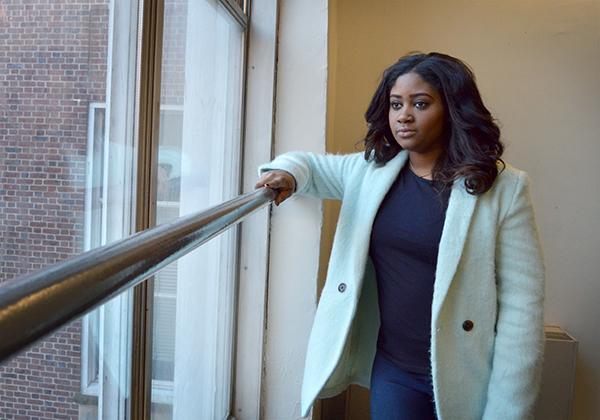More than 20 student organizations have come together to address race relations on campus, and the coalition’s top priority is the University Police Department.
GW Ferguson Coalition members said they believe that after conversations about police discrimination reached the national level in the aftermath of events in Ferguson, Mo. and Staten Island, N.Y., it’s important to bring the conversation to the University as well.
“We wanted to bring it home and look at GW, not just the big picture,” said senior Samah Mcgona, a coalition member. “Sometimes people forget there are issues of power and equality in their own lives. That was a big reason why we brought it to campus after Ferguson and Staten Island.”
Their first task is securing a seat at the table when officials pick the new campus police chief. Kevin Hay, who served as chief overseeing UPD’s more than 100 sworn officers for four years, stepped down in the fall.
Part of the reason the coalition wants student involvement is to increase communication between officers and the people they protect, Mcgona said.
“The general idea is that UPD is there to support students and, therefore, they need to talk to us,” she said. “There just has not truly been any dialogue in the past. We’re trying to make the campus a place where students feel safe regardless of their background, be it racial or ethnic or whatever else.”
Students are typically involved on committees tasked with hiring administrators. Students served on the working group that helped hire GW’s Title IX coordinator, Rory Muhammad, who started on campus this fall.
Maurissa Walls, a coalition member, said the students involved with the police chief search should “represent different backgrounds, different cultures and different populations at GW.”
Frank Demes, the University’s interim police chief, said he is willing to meet with the group to discuss “similarities and differences between GWPD and municipal agencies.” He said the “proactive outreach” would also include educating students about UPD’s annual training, which focuses on diversity, anti-profiling, behavior profiling, ethics and use of force.
“We would be happy to continue the dialogue if they follow up with us again this semester,” he said in an email.
The lobbying coalition has about 40 representatives from more than 20 different student organizations, including the GW Roosevelt Institute, the Progressive Student Union and the Black Student Union.
One of the group’s goals is to convince GW to create a website for students to report discrimination. The coalition is writing a petition for starting a website similar to George Mason University’s online form.
At least five former UPD officers have reported instances of sex-based, racial or age-based discrimination within GW’s police force since 2010. A housekeeping employee accused a UPD officer of discriminating against her on the basis of race and gender in 2011, the same year a student said he was subject to racial profiling by campus police and made a documentary about racial profiling in University crime alerts.
Addressing the ‘problem of trust’
Members of the GW Ferguson Coalition say their message is that highly nationalized events like the deaths of Michael Brown and Eric Garner are still important on a campus level.
“Often times, in a place of intellect like GW, we create this distance between us and the outside world. ‘Oh, that’s Ferguson. Oh, that’s Staten Island,'” coalition member Jade Graver said. “But we forget easily that these things could be happening at this University.”
Last semester, the same group organized a “die-in,” where about 30 students laid down in Kogan Plaza for four and a half hours – the same amount of time Brown’s body was left on the street. After officer Darren Wilson was not indicted, GW students also participated in a protest outside the White House.
Fran Buntman, an assistant professor of sociology, said the lesson from Brown’s and Garner’s deaths is that there is a “problem of trust” between police and civilians nationally, which makes talks between students and UPD on campus especially important.
“Most people want to work with the police, but they have to trust them first,” she said. “Good policing needs community cooperation.”
Buntman added that the first step to addressing these issues is to examine the current relationship by “seeing what are police perceptions of students, and what are student perceptions of police.”
Senior Alexis Coleman, another member of the coalition, said more personal connections are necessary for creating an atmosphere of mutual understanding between students and police officers on campus. About a dozen UPD officers participate in the Connect program, which aims to build trust between students and police.
“I don’t think a lot of people personally know a UPD officer they can say ‘Hi’ to on the street,” she said. “We have to be able to talk to officers about things we need, but we also need them for disciplining and policing. It has to go both ways.”








